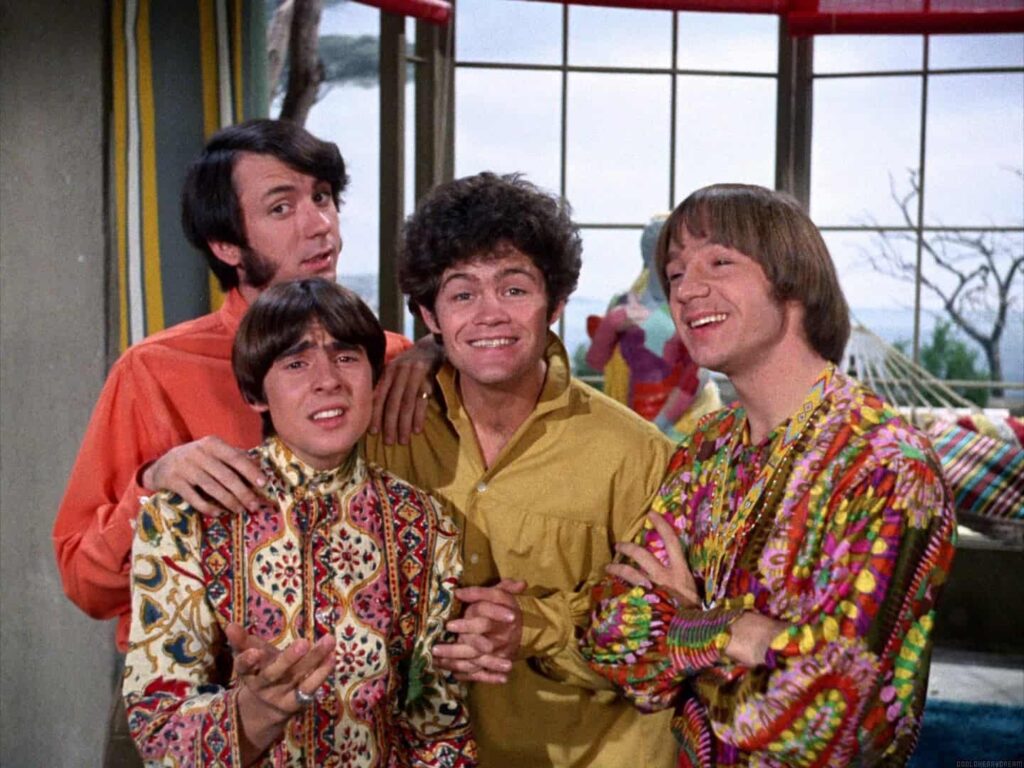
A Gentle Plea for Patience Amidst the Whirlwind of Early Fame
Ah, The Monkees and their infectious melodies! Today, we cast our minds back to “For Pete’s Sake,” a charming and somewhat understated gem that graced the airwaves during their whirlwind of popularity. Released in 1967, this delightful track, penned by Peter Tork himself, offered a slightly different flavor compared to some of their more overtly pop-infused hits. While it didn’t quite reach the dizzying heights of their chart-toppers like “I’m a Believer” or “Daydream Believer,” peaking at a respectable number 83 on the Billboard Hot 100, its impact resonated with a different kind of sincerity, a heartfelt plea amidst the chaos of their burgeoning fame.
The story behind “For Pete’s Sake” is as endearing as the song itself. Imagine a young band, catapulted into superstardom by a television show, suddenly finding their lives a dizzying array of concerts, recordings, and public appearances. It’s easy to envision the internal pressures and the longing for a moment’s respite. This song, in essence, became Peter Tork’s personal expression of that sentiment. It wasn’t about the screaming fans or the flashing lights; it was a gentle nudge, a quiet request for understanding and patience from those around them. Think of it as a postcard sent from the eye of a hurricane, a message scribbled with genuine feeling amidst the swirling winds of Beatlemania’s aftershock and the Monkees’ own manufactured frenzy.
The lyrics, so simple yet so resonant, speak of the weariness that can accompany even the most exciting of journeys. Lines like “Give me one more day, what do you say?” and “I’m so tired of it all” aren’t cries of despair, but rather sighs of exhaustion. They paint a picture of young men navigating a surreal landscape, their lives suddenly under a microscope. The repeated refrain, “For Pete’s sake,” a colloquialism expressing frustration or exasperation, adds a touch of relatable humanity to their experience. It’s as if Peter is turning to a trusted friend, a confidante, and simply saying, “Can we just slow down for a moment? Can we catch our breath?”
Musically, “For Pete’s Sake” possesses a gentle charm that sets it apart. While it retains the signature Monkees’ pop sensibility with its catchy melody and harmonies, there’s an underlying folk-rock influence that gives it a slightly more introspective feel. The acoustic guitar work and the laid-back rhythm section contribute to the song’s overall feeling of weary sincerity. It wasn’t the kind of track that would make you want to jump up and dance, but rather one that invited quiet contemplation, a moment of shared understanding. It was a reminder that behind the smiles and the catchy tunes, there were real people navigating extraordinary circumstances.
Interestingly, “For Pete’s Sake” found a second life years later, becoming the closing theme song for the Monkees’ television show during its syndicated run. This association cemented its place in the memories of a generation who grew up with the band’s antics and music. It served as a gentle farewell at the end of each episode, a soft landing after the comedic chaos. This later use perhaps amplified its feeling of gentle resignation, a fitting bookend to the often-frenetic energy of the show.
Looking back, “For Pete’s Sake” stands as a testament to the human side of fame. It’s a reminder that even in the midst of manufactured pop stardom, genuine emotions and heartfelt sentiments can find their way into the music. It’s a song that speaks to the universal need for understanding and a moment’s peace, a sentiment that likely resonated then, just as it does now, with anyone who has ever felt the weight of expectation. It’s a gentle echo from a vibrant era, a soft whisper of the pressures and the quiet longings that lay beneath the surface of pop culture’s bright facade. It remains a beloved tune for those of us who remember those days, a nostalgic sigh set to a comforting melody.